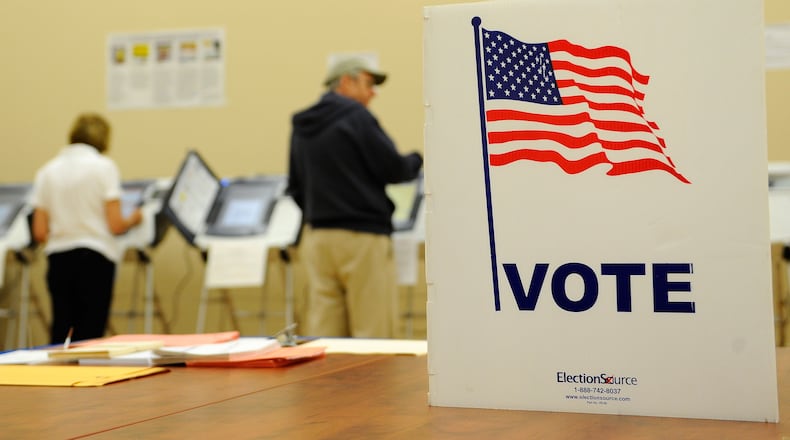An elections bill that includes a 26-month deadline for applicants to correct voter registration discrepancies passed on a party-line vote Thursday in the state Senate, after a nearly hourlong debate in which Democrats claimed it may impede voting in Georgia.
House Bill 268, sponsored by state Rep. Barry Fleming, R-Harlem, is considered by supporters as a cleanup of the state's election code, striking things such as outdated language while also making changes to current procedures including absentee voting. One provision, for example, eases absentee voting during presidential election years by allowing voters' requests for absentee ballots during the presidential primary to qualify them to get absentee ballots for all elections the rest of that year.
"This actually makes voting more accessible in Georgia," said state Sen. Josh McKoon, R-Columbus. "Sometimes there's a legitimate debate to be had over these measures. This is not one of those times."
The bill comes a little more than a month after the state settled a federal lawsuit accusing it of disenfranchising minority voters because of an "exact match" requirement used by the state on registration forms that critics said blocked thousands of them from voter rolls. In the settlement, the state agreed to no longer reject those applications and said applicants would not be under any deadline to correct a mismatch or to confirm their identity "unless mandated by a future statutory requirement."
That future requirement is now in HB 268. The bill also would create a 150-foot buffer for voter assistance groups outside polling locations and would no longer allow Georgians to use federal tribal identification cards as a valid form of identification to prove citizenship when registering.
Voter advocacy groups have said the bill violates the spirit of their legal settlement and will likely lead to more litigation.
Democrats took the same stance Thursday, citing Georgia's history of racial discrimination at the polls as what state Sen Nan Orrock, D-Atlanta, said was a warning for how lawmakers should handle election changes.
“People can show you the wounds on their body,” she said, adding that their access to casting a ballot was “systematically denied by law and frankly by brute force.”
“I wish we could move toward a day when we could get on the same page and embrace that history and repudiate these kinds of measures that are a constant drumbeat … to create barriers to the ballot,” she said.
Supporters including Fleming, however, said the 26-month deadline in the bill vastly improves the state’s former policy of giving flagged voter registration applicants just 30 days to correct discrepancies that did not exactly match personal identification information in state and federal databases.
Voters under the bill could still cast a ballot in an election as long as they registered in time within the 26-month period — even if they were flagged by the system. They would need to provide identification information to correct the discrepancy at the polls before voting, or they could cast a provisional ballot and provide the information to election officials afterward.
Thursday’s 32-18 vote was not final passage. Because of changes made by a Senate committee, the bill now goes back to the state House for review.
Legislative session coverage
The Atlanta Journal-Constitution has the largest team covering the Georgia Legislature. To see more of its legislative coverage, go to http://www.myajc.com/georgia-legislature/. To track particular bills and resolutions, check out the Georgia Legislative Navigator at http://legislativenavigator.myajc.com/. You can also follow the proceedings on Twitter at http://twitter.com/GAPoliticsNews or on Facebook at http://facebook.com/gapoliticsnewsnow.
Subscribe to our newsletter for more news about Georgia politics. Subscribe to politics news alerts in the AJC news app.
About the Author
Keep Reading
The Latest
Featured



